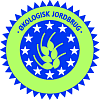2009. 7. 14. 23:14ㆍ고도의 집중과 몰입_Life Experiences/업무_Career
The most common organic label in Denmark is the so-called Ø-mark (Organic is called Økologisk in Danish).  This label is governmental and was introduced on the market already in 1990. All Danish consumers know it and for organic products it is an advantage to have this label on the packing.
This label is governmental and was introduced on the market already in 1990. All Danish consumers know it and for organic products it is an advantage to have this label on the packing.
|
|
| The EU organic label |
The Ø-mark is not exclusively for Danish produced products. Also imported products can be labelled with the Ø-mark but only importing or manufacturing companies certified by the Danish government can put the label on the package.
So organic products exported to Denmark need a packing or labelling process in Denmark if the Ø-mark should be on the product.
In the last few years the EU organic label has become more common - often used together with the Ø-mark. More and more imported products are sold in Danish supermarkets only with the EU label. For products that are not genuine produced in Denmark (like bananas, citrus fruits) the consumers are slowly getting used to see the EU label instead of the Ø-mark.
No other organic labels are commonly known by Danish consumers although many products have supplementary labels. Among the most common are Soil Association, KRAV, SKAL and Debio.
Organic products exported to Denmark only need to satisfy the EU regulations on organic agriculture. Note however that Danish supermarkets prefere products living up to the Danish organic consumers demands. It means that nitrate (E250) is not accepted to conserve processed meat products. Also organic fruits produced without the use of copper are prefered.
'고도의 집중과 몰입_Life Experiences > 업무_Career' 카테고리의 다른 글
| KOTRA 강연 중 (0) | 2009.07.20 |
|---|---|
| EU regulation(organic market) 834/07 (0) | 2009.07.16 |
| 2007 투자 핵심 가이드 (덴마크) (0) | 2009.07.14 |
| COLD CALLing(2) (0) | 2009.07.08 |
| COLD CALLing (0) | 2009.07.08 |
